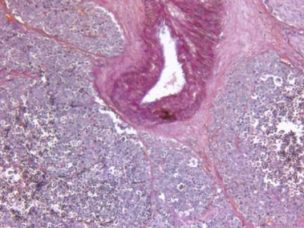Oncology
Dr. Onyemaechi Okolo: Multiple Myeloma in the Black Community
In this MD Newsline exclusive interview with oncologist Dr. Onyemaechi Okolo, we discuss the high incidence and prevalence of multiple myeloma in the Black community. We also discuss how multiple myeloma presents in Black Americans. MD Newsline: Why is multiple myeloma so prevalent in the Black community? Dr. Onyemaechi Okolo: “So, there is a genetic...
Cancer Survival and Cancer Mortality Among Black Americans
In this MD Newsline exclusive interview with oncologist Dr. Onyemaechi Okolo, we discuss cancer survival and cancer mortality among Black Americans. We also discuss how a patient’s socioeconomic status and education level impact their cancer management. MD Newsline: Why do Black Americans have the highest mortality rate and shortest survival of any racial/ethnic group in...
Globalization of Cancer Trials Tied to Lower Enrollment of Blacks
The globalization of cancer clinical trials is associated with a widening racial disparity in enrollment, according to a study published online March 8 in Cancer. Serena Tharakan, from the Icahn School of Medicine at Mount Sinai in New York City, and colleagues analyzed race and accrual location data for all U.S. Food and Drug Administration-approved...
FDA Approves Tracer That Improves Detection of Advanced Prostate Cancer
A new imaging agent that detects prostate cancer that has spread to other parts of the body has been approved by the U.S. Food and Drug Administration. The tracer will help doctors find metastatic prostate cancer cells that are difficult to detect with traditional imaging methods, Michael Morris, M.D., a medical oncologist at Memorial Sloan...
Successful Recruitment of Black Men for Prostate Cancer Trials
The recruitment of Black men for clinical trials has been a factor overlooked by many studies. In the U.S., prostate cancer incidence and mortality vary by race. Prostate cancer incidence and mortality are higher in Black men than their non-Black counterparts. There have been multiple phase 3 clinical trials over the past 5 years that...
Making History at St. Jude: Dr. Rudolph Jackson
When St. Jude opened in 1962, Danny Thomas vowed the hospital would treat patients regardless of race, religion or ability to pay. Dr. Rudolph Jackson was one of the first black doctors at St. Jude. While he was finishing his training in Philadelphia, Dr. Rudolph Jackson fielded an offer to move 1,000 miles and begin...
Biomarker May Predict Treatment Outcome in Advanced Melanoma
Among patients receiving targeted therapy for advanced melanoma, BRAF V600-mutant cell-free circulating tumor DNA (ctDNA) measurements potentially could predict clinical outcome, according to a study published online Feb. 12 in The Lancet Oncology. Mahrukh M. Syeda, from NYU Langone Health in New York City, and colleagues examined whether baseline ctDNA levels and kinetics could predict survival outcomes among...
Even Low-Intensity Exercise Can Help During Cancer Treatments
If you have cancer and you’re trying to exercise to boost your health, new research suggests you don’t have to knock yourself out during your workout. Light exercise is just as beneficial as more demanding workouts for cancer patients, the researchers found. Previous research has shown that physical activity can improve cancer patients’ physical and...
FUS Ablation Feasible for Intermediate-Risk Prostate Cancer
Targeted focal therapy with magnetic resonance imaging (MRI)-guided focused ultrasound ablation is feasible for the treatment of intermediate-risk prostate cancer, according to a study published online Feb. 2 in Radiology. Sangeet Ghai, M.D., from the University of Toronto, and colleagues conducted a prospective phase II trial involving men with unifocal clinically significant prostate cancer visible at...
More Medical News













